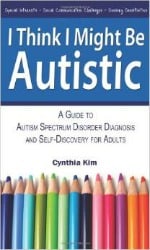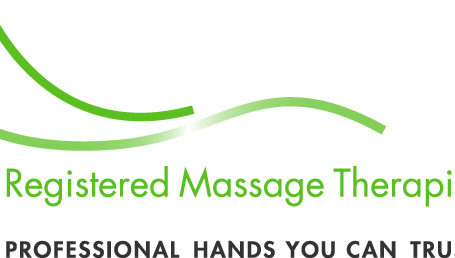Don’t navigate the world of jobs, coworkers, and bosses alone – use these career tips for adults with autism to make your life easier! Here are job options for adults with autism, links to autism blogs, and new research on autistic disorder.

If you’re not sure if you have autism, read I Think I Might Be Autistic: A Guide to Autism Spectrum Disorder Diagnosis and Self-Discovery for Adults by Cynthia Kim. She shares the information, insights, tips, suggestions and resources she gathered when she was finally diagnosed with Asperger’s syndrome in her forties. This concise guide also addresses important aspects of living with autism as a late-diagnosed adult, including coping with the emotional impact of discovering that you’re autistic.
What inspired me to write about adult autism? My focus on new beginnings and transitions, of course! Today, I learned how much parents of children with autism worry about their child’s transition to adulthood.
Judy Blake has two sons with autism spectrum disorders – both are now legally considered adults. She encourages parents of children with autism spectrum disorder to keep an open mind.
“What’s going to work for one adult with special needs might not work for the next,” she says. “Some [adults with autism] may need a group home. Some may live in an apartment, but can’t drive. There are no cookie-cutter solutions.” – from A Mother’s Hopes and Worries for Adult Sons With Autism.
Don’t lose hope if your child has autism and you’re worried about the transition to adulthood! Right now there isn’t much research about adult autism in comparison to childhood autism, but doctors and psychologists are aware of this gap. At the end of this article is an excerpt from a psychologist who works with adults with autism and the legal system – she is spreading awareness about the research needs for adult autism.
10 Tips for Adults With Autism at Work
These tips are mostly geared towards parents of autistic adults, but will also be helpful for the adults themselves.
1. Focus on encouragement and support. “Some adults with an autism spectrum disorder (ASD), especially those with high-functioning autism or with Asperger syndrome, are able to work successfully in mainstream jobs. Nevertheless, communication and social problems often cause difficulties in many areas of life. They will continue to need encouragement and moral support in their struggle for an independent life.” – from the National Institute of Mental Health’s Adults with Autism. Ongoing support and encouragement is one of the most important tips for living with autistic disorder as an adult. Will your autistic child be able to get a job, live outside your home, and be independent? It depends on many factors – but it’s important to ensure that the right support structure is in place.
2. Look for jobs specifically for adults with autism. In Harry’s Buttons Offers Employment to Adults with Autism, a dad described how his son used to love playing with their button-making machine in the basement. The dad – Harry Engnell Sr – realized that he could help his autistic son transition to adulthood by turning his son’s love of making buttons into a business. This wouldn’t just give his son a job, but would offer jobs for other autistic adults in their local community. “Thus, Harry’s Buttons was born,” writes Laurel Joss in this article about employment for adults with autism. “It’s a thriving business – the staff creates buttons for schools, non-profits, churches, fairs, and many other organizations and individuals….The Engnell family donated the business to Easter Seals Metropolitan Chicago in 2010, and the company currently has two locations, Tinley Park and Chicago. They employ over 40 adults with autism creating buttons, magnets, and key chains of various sizes and designs.
 3. Think “outside the box” when looking for work. Vodafone is the biggest company in Europe that actively seeks people with high functioning autistic disorders, because of their ability to engage in “blue sky thinking” and understand code. Many IT companies seek and employ adults with high functioning autism because the condition promotes “outside the box” and original thinking.
3. Think “outside the box” when looking for work. Vodafone is the biggest company in Europe that actively seeks people with high functioning autistic disorders, because of their ability to engage in “blue sky thinking” and understand code. Many IT companies seek and employ adults with high functioning autism because the condition promotes “outside the box” and original thinking.
4. Consider internet jobs. Since the Internet doesn’t use non-verbal cues to communicate, it may be a good source of employment for autistic adults who find it difficult to socially engage. To find a job, start contacting agencies such as state or provincial employment offices, social services offices, mental health departments, and disability-specific organizations.
You might also consider the Best Jobs for Introverts and Quiet People when you’re thinking about jobs for adults with autism.
5. Prepare yourself by talking to other parents of adults with autism. Learn what challenges parents and autistic adults face – and tips for living with autism disorder. “As they transition into adulthood, kids with autism are perceived as weird, and they may find it difficult to make friends or keep a job,” says Judy (the mom at the very beginning, who has two adult sons with autism). In addition to a lack of resources for daily living and education, Blake worries that her sons, especially her younger son, might be taken advantage of.
6. Transition to a “work mentality” as early as possible. New studies show that young adults with autistic disorders have worse employment outcomes in the first few years after high school than those with other types of disabilities. Further, their pay rates are significantly lower compared to young adults with other types of disabilities. This is why it’s important to start the transition to living with autism as an adult early – so you can start dealing with the challenges of living with adult autism.
Tips for Living With Autistic Disorder

10 Career Tips for Adults With Autism
7. Connect with a support group for adults with autism. Regardless of how you’re supporting an adult with autism, it’s crucial to build relationships with other parents! Don’t forge ahead alone. Lean on people who know what you’re going through, and who can offer advice and support.
8. Search for autism blogs. Autism and Oughtisms is a blog created by a mother of two sons, seven and three. Her oldest son has classic autism. She says, “Much of my blog is about my parenting experiences with my seven year-old, who has had his diagnosis since he was three, but has shown signs of his autism well before then. I also blog about wider autism issues and a variety of autism viewpoints.” She has a law degree with honours, and a philosophy degree with honours. On her blog, she shares links to several great autism blogs.
9. Learn about “adult autism” issues. On the autism blog (Autisms and Oughtisms) above is a very interesting post about living with autistic disorder. The blogger described a radio interview with Tanya Breen, who is a clinical psychologist in New Zealand. Tanya works with adults with autism in the legal system. “Tanya highlights the big gap in research when it comes to autistic adults, noting that there are huge numbers of un-diagnosed autistic adults in the community, and how much we could learn from finding and researching these individuals….more research is needed, especially for the population of adults with autism. Such research is key in courts where opinions backed by research are more important and weighty than opinions just backed by personal (albeit it professional) experience with autistic adults.” – from Autism Grows Up: Issues for autistic adults highlighted in Radio NZ interviews.
10. Be gentle with yourself as parents of an adult with autism. Judy offers another important tip for living with autistic disorder as an adult: it brings up a new set of issues for parents. “It makes you as parents realize hat you’re not going to be around forever,” Blake says. “It’s really difficult for some parents to realize that their child won’t follow in their footsteps. It can be the end of a dream for some parents. But, you have to do what is best for your children.”
Resources for Adult Autism
Different . . . Not Less: Inspiring Stories of Achievement and Successful Employment from Adults with Autism, Asperger’s, and ADHD by Temple Grandin and Tony Attwood
- Adults on the Autism Spectrum Leave the Nest: Achieving Supported Independence by Nancy Perry
- Asperger’s on the Job: Must-have Advice for People with Asperger’s or High Functioning Autism, and their Employers, Educators, and Advocates by Rudy Simone
If you have any thoughts on adults with autism or tips on living with autistic disorder, please comment below.






1 comments On 10 Career Tips for Adults With Autism
Very informative article. I have a friend who has an Adult Son with Aspergers.
Growing up I saw some kids that were autistic. I know that it can be a challenge living with someone who is autistic. However, this article has some very good content. What I like the most is the story about the Dad who started a business to help is soon. I am guessing he did well with that business, when his objective was to help his son. Once again, what a good read.